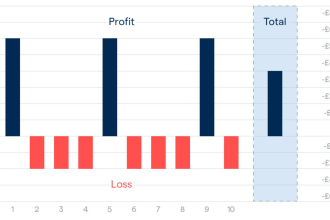The economic conditions of the moment lead many people to wonder about alternative investment decisions, in particular trying to anticipate what could be the results of some dynamics taking place.
The first element to be taken into high consideration is the inflation that has been affecting the United States and Europe for many months now, lasting longer than was initially hoped for. In this regard, it is certainly useful to point out that analysts have always argued that a high rate could push people to take refuge in digital currencies. This is due to the fact that major currencies, such as the euro and the dollar are losing their purchasing power. Here you can ready about how much the inflation is impacting American economy.
However, if on the one hand Bitcoin and some other cryptocurrencies appear to be an excellent investment alternative, which in some moments also takes on the characteristics of a safe haven asset, on the other hand they are at the center of a long negotiation for regulations. For a long time, in fact, central banks have openly sided against cryptocurrencies, often causing collapses in the value of digital currencies. In recent times, perhaps something in this sense is changing.
Regulamentation might come soon
If cryptocurrencies were definitively regulated, the progress of this asset could really be significant. According to the reconstructions of the sector, the European Union would be working in this regard and it is not excluded that in the future there may be openings, at least towards virtual currencies considered more solid and reliable.
By definition, in fact, cryptocurrencies are an asset characterized by very high volatility by the fact that they can acquire or lose significant shares of value in a very short time. More accurate regulation could instead lead to a consolidation of the main cryptocurrencies and even make them truly a safe haven asset, as has long been hoped for by the supporters of this asset. At the moment, however, it is certainly certain that a lack of well-defined regulation also brings some advantages, such as the impossibility of raising the interest rates applied when inflation increases.
What next for this sector?
Even if all forecasts always foresee a certain margin of error and therefore must be used with caution, several analysts agree in establishing some interesting points. In this period, cryptocurrencies offer their investors some very interesting advantages, such as:
- Resistance to inflation.
- Scheduled mining.
- Digital use.
- Possible safe haven asset.
- Growing interest in public opinion.
The main cryptocurrencies are currently immune from inflation thanks to their specific rules. For example, Bitcoin never exceeds its maximum limit (set at 21 million) and a similar logic also guides other digital currencies. Mining, or the double procedure that allows both to issue new digital currencies and to make those that are already in circulation usable, is very important and can be programmed in such a way as not to create any effect similar to the inflation that affects traditional currencies. Definitely, there are different platforms where to start this experience and it is important to understand the features of each of them. Here is one example with a link redirecting to the news spy review where it will be possible to see step by step how to start investing in cryptos.
What to take away
In general, the fact that cryptocurrencies allow you to invest directly through the web and that they are free from many logics that instead affect traditional currencies allows us to establish that this asset has great potential for the future. Obviously, it is important that those who decide to invest in cryptocurrencies do so with great caution, carefully evaluating which of these to buy and what may be the best time to do so. Furthermore, it is certainly also useful to use a risk containment tool, such as the “stop loss” which allows you to determine in advance how much an investor is willing to lose with an operation.














